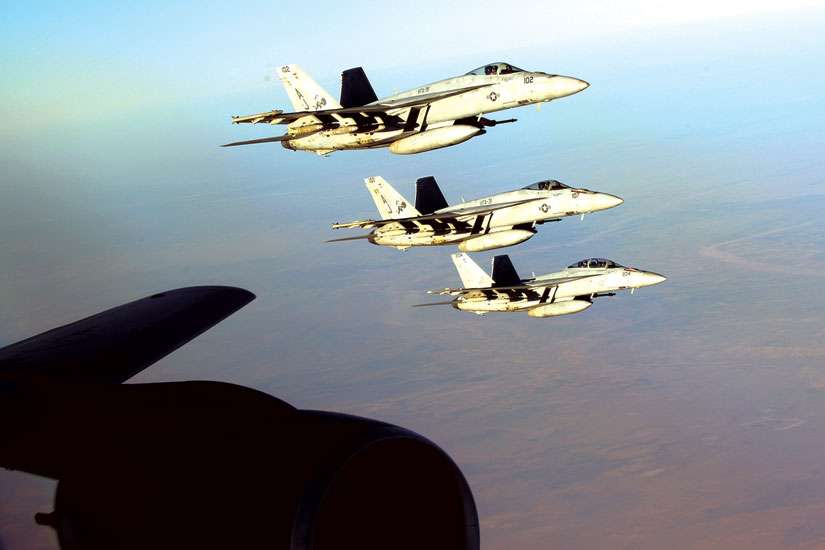In an interview from Toronto, Eparchial Bishop Emanuel Shaleta said countries like Canada need to do “whatever they can to stop the barbaric actions of ISIS.”
Shaleta recognized the intervention will be costly in terms of lives and money, but “it is part of our human responsibility,” especially since Canada is known for its support of human rights and international law.
Shaleta warned if Canada does not do something to degrade the Islamic State, it would not only expand its activities in the Middle East, but also potentially inside Canada.
“They know how to convince people, to sell their ideas,” he said. “Maybe here in Canada, there are many sympathizers.”
On March 30 the House of Commons passed a motion by a vote of 142 to 129 to extend and expand its military intervention against the Islamic State. The mission will now include airstrikes in Syria as well as Iraq until March 30, 2016.
“(The Islamic State’s) barbarity is an affront to human dignity and to the civilized world,” said Foreign Affairs Minister Rob Nicholson when he introduced the motion. “It threatens the very principles that shape Canada’s national identity and guide our engagement on the global stage. Its violent ideology and expansionist agenda jeopardize Canadian interests and threaten Canadian citizens.”
Defence Minister Jason Kenney argued Canada has a moral obligation to defend against genocide and ethnic cleansing, describing the Islamic State as “the common enemy of humankind.”
“It is hard for some, perhaps with the enlightened Western paradigm, to grasp the nature of this organization, because it is profoundly irrational in its entire ideology, in its motivations and in its actions,” Kenney said. “This is an organization that is motivated by a dystopian vision of imposing, through violence, a caliphate: the idea of a theocracy grounded in a particularly violent iteration of seventh-century Sharia law.”
The motion was opposed by the New Democrats and the Liberals. The New Democrats opposed military intervention, but support beefing up Canada’s humanitarian aid; the Liberals support training Iraqi troops, but insist Canada’s military must be engaged in non-combat missions.
Appointed bishop by Pope Francis in 2014, Shalata said that taking a stand against the Islamic State and continuing to degrade its capabilities “will be beneficial to Canada.” In addition, action “will show the whole world Canada is thinking about defenceless people,” said the Iraqi-born bishop.
Shaleta said the Islamic State started in Syria and diminishing its capabilities means “it is necessary to follow them where they are.”
“These guys are not behaving as human beings,” he said. Their barbaric behaviour “shows no respect for international law,” and they exhibit “no compassion in their hearts at all.”
The bishop said Iraq and Syria are “just names” on the maps, and neither country has a real government, just warring militias and “no one is there to take control.” The Islamic State “can cross the border any time they want,” he said.
Carl Hetu, national secretary for the Catholic Near East Welfare Association, Canada, stressed the need for a peace plan.
“I think everybody knows in the Middle East and in the world (the Islamic State) needs to be stopped and punished for its crimes,” Hetu said CNEWA. “At the bottom of it all, peace is what’s needed.”


